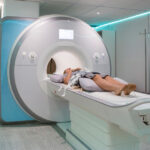Ambulatory ECG monitoring, commonly known as Holter monitoring, is a non-invasive diagnostic method that tracks your heart’s electrical activity over an extended period, usually between 4 to 48 hours, and sometimes even longer with the latest devices. Unlike a standard ECG, which only provides a brief snapshot of your heart’s rhythm, ambulatory monitoring offers continuous data, enabling us to identify intermittent or rare arrhythmias (irregular heartbeats) that could be overlooked during a short visit to the clinic. This service is essential for those experiencing palpitations, dizziness, or unexplained chest pain. It plays a crucial role in diagnosing arrhythmias, evaluating the effectiveness of antiarrhythmic medications, and assessing the risk of future cardiac events.
Procedure Overview
During ambulatory ECG monitoring, small electrodes are attached to your chest, connected to a portable recording device. You’ll wear the device for the prescribed duration, carrying on with your normal daily activities. The device continuously records your heart’s electrical activity, storing the data for later analysis. You’ll be asked to keep a diary of any symptoms you experience during the monitoring period, noting the time and duration. After the monitoring period, you’ll return the device, and the recorded data will be analysed by our specialists. At Heartmatters, we utilise advanced digital Holter monitors that are lightweight, comfortable, and provide high-quality recordings.
Benefits & Importance
Ambulatory ECG monitoring offers several advantages over standard ECGs. It captures heart rhythm abnormalities that occur intermittently or infrequently, providing a more comprehensive view of your heart’s electrical activity. It helps identify the cause of unexplained symptoms, such as palpitations or dizziness. It also helps assess the effectiveness of antiarrhythmic medications and evaluate the risk of future cardiac events. By providing continuous data, it allows for accurate diagnosis and personalised treatment plans.
Preparation & Requirements
No specific preparation is needed for ambulatory ECG monitoring. You can eat, drink, and take your medications as usual. It’s important to wear loose-fitting clothing that allows easy access to your chest. During the monitoring period, you should avoid bathing or showering to prevent damage to the device. You’ll be asked to maintain your normal daily routine as much as possible, avoiding strenuous activities that could dislodge the electrodes.
Risks & Considerations
Ambulatory ECG monitoring is generally safe and well-tolerated. Some individuals may experience mild skin irritation from the electrodes. In rare cases, the electrodes may become dislodged, requiring replacement. The device may interfere with sleep for some individuals. Ambulatory ECG monitoring might not be suitable for individuals with certain skin conditions or those who are unable to keep the device dry. It’s important to discuss any concerns with your doctor before undergoing the procedure.
Understanding your heart’s rhythm is crucial for preventing and managing cardiac arrhythmias. Ambulatory ECG monitoring provides a comprehensive and accurate assessment of your heart’s electrical activity, helping us tailor personalised treatment plans. If you’re experiencing palpitations, dizziness, fainting spells, or unexplained chest pain, don’t hesitate.











